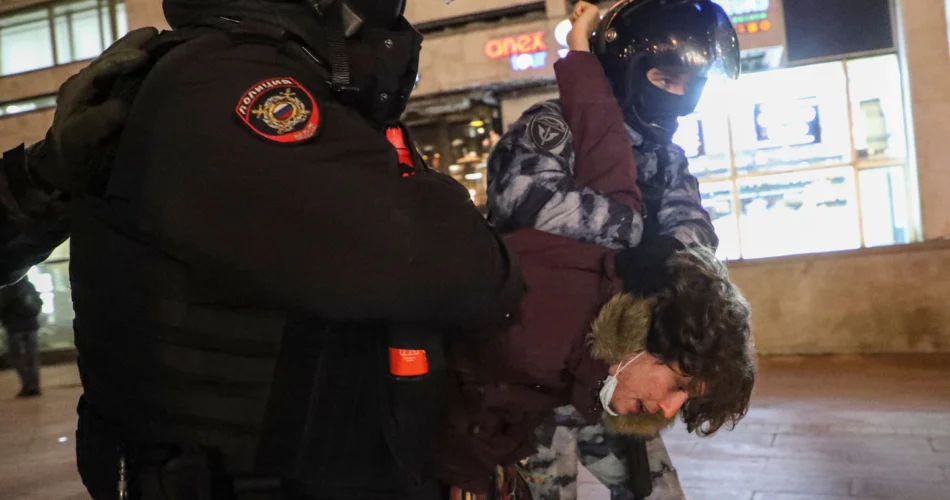“We, employees of the Russian IT industry, are categorically against military operations on the territory of Ukraine initiated by the armed forces of the Russian Federation,” the petition says. “We consider any display of force that leads to the outbreak of war unjustified and call for the reversal of decisions that could inevitably entail human casualties on each side. Our countries have always been close to each other. And today we are worried about our Ukrainian colleagues, friends and relatives.”
The petition is the latest example of internal opposition to the invasion, which came as a surprise to many Russians. Some prominent comedians, television figures and political analysts have spoken openly against the war, and Thursday, thousands of Russians protested across the country, with more than 1,700 arrested in 47 cities, according to rights group OVD-Info. Spontaneous mass demonstrations are illegal in Russia and can lead to jail time and fines.
“I would really like to be heard. Not only me, but also everyone who does not want war, everyone who is afraid for their friends and acquaintances,” Lukyanchikova, the petition organizer, wrote on Facebook. “I don’t know if this will work out, but I know that collective action helps sometimes. This also helps people understand that they are not alone.” She confirmed her post to The Washington Post in a conversation on the Telegram messaging app.
Russia has a deep history of technological innovation, and its IT sector makes up a key part of the country’s economy. More than 1.3 million people were employed in the industry in 2019, contributing 2.7 percent of Russia’s gross domestic product, according to research firm IDC. Thousands of Russian-born engineers and developers have also contributed to the U.S. tech sector, including Google co-founder Sergey Brin and the creator of the Ethereum blockchain system, Vitalik Buterin, both of whom immigrated to North America with their families as children.
Buterin spoke out against Putin’s invasion on Wednesday, writing on Twitter that the war was a “crime against the Ukrainian and Russian people.”
Soon after Lukyanchikova created the petition, it began spreading among Russian tech workers, who shared it with friends and colleagues on social media.
“10,000, it’s a huge number,” said Alexander Tomas, a tech worker at a major IT firm who signed the petition, adding that he believed that all the signatories lived in Russia or were of Russian origin. “There were no big names, opinion leaders or influencers behind the letter, so people mainly signed it and shared with each other on Telegram and other messengers.” Lukyanchikova and Tomas both spoke on the condition that their employers not be identified.
Tomas said most of his friends and colleagues work in tech or journalism, and most of them wrote on social media opposing the attack. Some even attended rallies. “The current situation will mainly affect normal people in Ukraine and Russia,” he said.
Tomas also said that the retaliatory sanctions from Western countries against Russia won’t hurt the country’s wealthy elite. “In the end of the day, sanctions will hit precisely doctors, teachers, pensioners who will have less money to live,” he said.



